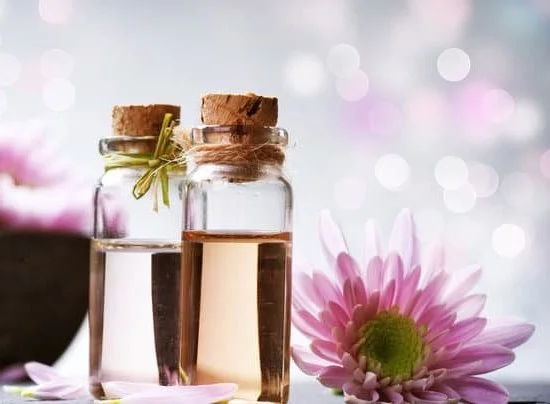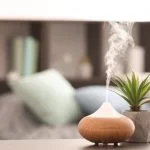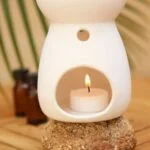Aromatherapy is the use of essential oils to promote health and wellbeing, offering a natural alternative to traditional medicine. This Aromatherapy Study Guide will provide you with an in-depth look at the practice, covering everything from its history to its modern-day application. Whether you’re a beginner or looking to expand your knowledge, this guide will serve as a comprehensive resource for all things aromatherapy.
Aromatherapy has been around for centuries, with ancient origins that have evolved into modern practices. Understanding its roots and how it has developed over time is crucial in gaining a holistic view of the practice.
Furthermore, learning about the principles and benefits of essential oils is fundamental in mastering the art of aromatherapy. This study guide will explore various topics such as choosing the right essential oils, different techniques for application, and how aromatherapy can be used for stress relief and emotional well-being.
In addition to delving into the therapeutic benefits of aromatherapy, this guide will also cover safety precautions and proper usage of essential oils. With the rise in popularity of aromatherapy, it’s important to understand potential risks and how to utilize these powerful substances responsibly. Lastly, this study guide will point aspiring practitioners towards valuable resources such as books and courses that can further their knowledge and expertise in aromatherapy.
The History of Aromatherapy
Aromatherapy has a long and rich history that dates back to ancient civilizations. The use of aromatic plants for medicinal, religious, and cosmetic purposes can be traced to ancient cultures such as the Egyptians, Greeks, Romans, Chinese, and Indians.
In these civilizations, aromatic substances were highly valued for their healing properties and were used in various rituals and ceremonies. The practice of using essential oils extracted from plants for therapeutic purposes has evolved over thousands of years and continues to be an important part of modern holistic health practices.
The modern practice of aromatherapy as we know it today began in the early 20th century when French chemist René-Maurice Gattefossé coined the term “aromatherapy” after discovering the healing properties of lavender oil when he accidentally applied it to a burn wound. This discovery led him to further explore the potential uses of essential oils for their therapeutic benefits.
Gattefossé’s work laid the foundation for modern aromatherapy practices and sparked interest in the scientific study of essential oils and their effects on physical and emotional health.
In recent decades, there has been a resurgence of interest in aromatherapy as more people seek natural and holistic approaches to health and wellness. Aromatherapy is now widely used in spa treatments, massage therapy, alternative medicine, and even in conventional medical settings.
As research continues to uncover the benefits of aromatherapy, its popularity is expected to grow even further. For those interested in delving deeper into the history of aromatherapy and understanding its modern practices, there are numerous resources available ranging from books to online courses that can serve as an informative aromatherapy study guide for aspiring practitioners.
Essential Oils 101
What Are Essential Oils?
Essential oils are concentrated liquids extracted from leaves, flowers, stems, roots, or other parts of plants. These oils contain the natural essence of the plant, including its fragrance and unique properties. They have been used for centuries in various cultures for their medicinal and therapeutic benefits.
The Basic Principles of Essential Oils
The use of essential oils is based on the principles of aromatherapy, which involves using these oils to improve physical, mental, and emotional well-being. When inhaled or applied to the skin, these oils can stimulate the olfactory system and affect the brain’s limbic system – the area that controls emotions.
The Benefits of Essential Oils
The benefits of essential oils are wide-ranging and include promoting relaxation, improving sleep quality, reducing stress and anxiety, alleviating pain and inflammation, boosting mood and energy levels, supporting immune function, and even enhancing cognitive function. Different essential oils offer different benefits, so it’s important to choose carefully based on your specific needs.
As you delve into the world of aromatherapy study guide it is crucial to understand the basic principles and benefits of essential oils. With a solid understanding of what essential oils are and how they work, individuals can begin to explore their uses and potential applications for overall well-being.
Choosing the Right Essential Oils
Understanding the Basics
When it comes to choosing the right essential oils for aromatherapy, it’s important to understand the basics. Essential oils are derived from various plant sources such as flowers, leaves, bark, and roots. Each essential oil contains its own unique combination of natural components, giving it distinct therapeutic properties.
Some essential oils are known for their calming effects, while others are used for their energizing or uplifting qualities. Understanding the basic principles of essential oils will help you make informed choices when selecting them for your aromatherapy practice.
Factors to Consider
There are several factors to consider when choosing the right essential oils for aromatherapy. Firstly, it’s important to consider the intended purpose of the aromatherapy treatment. For example, if you’re looking to promote relaxation and reduce stress, you may want to choose lavender or chamomile essential oil. On the other hand, if you’re seeking an energy boost or mental clarity, peppermint or rosemary essential oil may be more suitable.
Another factor to consider is the quality of the essential oil. It’s crucial to choose high-quality, pure essential oils that have been properly extracted and produced. Look for reputable suppliers who offer pure and natural products without any synthetic additives or dilution.
Experimentation and Personal Preferences
Ultimately, choosing the right essential oils may also involve a degree of experimentation and personal preference. Some individuals may respond differently to certain scents based on their unique olfactory system and personal associations with specific aromas. It’s recommended to start with a few key essential oils and observe how they affect your mood and overall well-being before expanding your collection.
In order to deepen your understanding of how different essential oils can be used in aromatherapy practice and which ones are best suited for specific purposes, it’s beneficial to consult reputable resources such as books and courses specifically designed for aspiring practitioners in this field,this connection between intrinsic properties of each essence allows us all vary between one another.
thus find additional insight into making informed decisions about choosing the right essential oils_Aromatherapy Study Guide_.
Aromatherapy Techniques
Aromatherapy encompasses various techniques for using essential oils to promote both physical and emotional well-being. These techniques include diffusion, massage, and inhalation. Each method has its own benefits and can be used in different situations to achieve specific results.
Diffusion is one of the most popular and convenient ways to enjoy the benefits of essential oils. This method involves dispersing the aroma of the oils into the air using a diffuser. Diffusers come in different forms, such as ultrasonic, nebulizing, heat, and evaporative diffusers. Using a diffuser allows the oils to be inhaled and absorbed through the respiratory system, providing a quick and effective way to experience their effects.
Another common technique is aromatherapy massage, which involves diluting essential oils with a carrier oil and applying them topically to the skin through massage. This method not only allows for direct absorption of the oils through the skin but also provides a relaxing and therapeutic experience. Aromatherapy massage can be used for targeted relief of muscle tension or as part of a holistic approach to emotional well-being.
Inhalation is yet another technique that involves breathing in the aroma of essential oils directly from an open bottle or by adding a few drops to a tissue or cotton ball. This method can provide immediate support for respiratory health, mental clarity, or emotional balance.
Inhalation is also useful when on-the-go or when diffusers are not available. When practicing any of these techniques, it’s important to use high-quality essential oils and follow safety guidelines for proper usage.
| Aromatherapy Technique | Benefits |
|---|---|
| Diffusion | Quick absorption through respiratory system; convenient; effective |
| Aromatherapy Massage | Topical application for direct absorption; promotes relaxation; can target specific issues |
| Inhalation | Immediate support for respiratory health; mental clarity; emotional balance; portable option |
Aromatherapy for Stress Relief and Emotional Well-Being
Aromatherapy has been used for centuries as a natural way to reduce stress and improve emotional well-being. The use of essential oils in aromatherapy can have a powerful effect on the mind and emotions, helping to promote relaxation, reduce anxiety, and uplift mood. Many people turn to aromatherapy as a complementary therapy to support mental and emotional health.
Several essential oils are particularly effective for stress relief and emotional well-being. Lavender, known for its calming properties, is commonly used to reduce anxiety and promote relaxation. Citrus oils like bergamot and sweet orange are uplifting and energizing, making them great choices for improving mood. Frankincense is another popular choice for emotional support, with grounding and centering properties that help to alleviate stress and promote emotional balance.
Aromatherapy can be enjoyed in various ways for stress relief and emotional well-being. Diffusing essential oils at home or work can create a peaceful atmosphere conducive to relaxation. Aromatherapy massage with diluted essential oils can help relieve tension in the body while promoting emotional calm. Inhaling essential oils directly from the bottle or using them in a personal inhaler can provide quick relief during moments of stress or anxiety.
| Essential Oil | Benefits |
|---|---|
| Lavender | Calming, reduces anxiety, promotes relaxation |
| Bergamot & Sweet Orange | Uplifting, energizing, improves mood |
| Frankincense | Grounding, centering, helps alleviate stress |
Aromatherapy for Physical Health
Aromatherapy has been used for centuries as a natural remedy for various physical health issues. It is believed that the inhalation and topical application of essential oils can aid in treating ailments and supporting overall wellness. When it comes to using aromatherapy for physical health, it is important to understand the basic principles and choose the right essential oils for the desired effect.
Here are some essential oils commonly used in aromatherapy for physical health:
- Lavender: Known for its calming and soothing properties, lavender oil can help with relaxation, stress relief, and improving sleep quality.
- Peppermint: With its refreshing and cooling sensation, peppermint oil is often used to alleviate headaches, muscle pain, and digestive issues.
- Eucalyptus: This oil is commonly used for respiratory issues such as congestion, coughs, and sinusitis due to its decongestant properties.
- Tea Tree: Known for its antimicrobial properties, tea tree oil can be used topically to treat minor skin irritations, cuts, and infections.
In addition to choosing the right essential oils, there are various techniques for using aromatherapy for physical health. Diffusion allows the inhalation of essential oils through the air, while massage involves diluting essential oils with a carrier oil and applying them to the skin.
Inhalation techniques such as steam inhalation or using an aromatherapy inhaler can also be effective for targeting respiratory issues. When using aromatherapy for physical health, it’s important to consult with a qualified practitioner or healthcare professional to ensure safe and proper usage.
Aspiring practitioners looking to delve deeper into the use of aromatherapy for physical health can benefit from resources such as books and courses specifically tailored to this aspect of aromatherapy. Understanding the potential benefits and risks associated with using essential oils for physical health is crucial in becoming a knowledgeable and responsible practitioner in this field.
Aromatherapy Safety and Precautions
Aromatherapy, when practiced safely and with proper precautions, can offer countless benefits for physical and emotional well-being. However, it is crucial to understand the potential risks involved and the necessary safety measures to ensure a positive experience with essential oils. Here are some important tips for proper usage and potential risks to keep in mind:
- Dilution: Essential oils are highly concentrated and should never be used directly on the skin without being diluted. Always mix them with a carrier oil such as coconut or almond oil before applying topically.
- Patch Test: Before using a new essential oil, it’s essential to perform a patch test on a small area of skin to check for any allergic reactions or sensitivities.
- Inhalation Safety: When using essential oils for inhalation, whether through diffusion or direct inhalation from the bottle, it’s important to do so in a well-ventilated area and avoid prolonged exposure.
- Storage: Essential oils should be stored in dark glass bottles away from sunlight and heat, as these factors can degrade their potency over time. They should also be kept out of reach of children and pets.
Additionally, there are potential risks associated with certain essential oils, including skin irritation, photosensitivity (increased sensitivity to sunlight), allergic reactions, and adverse effects on individuals with certain medical conditions or during pregnancy. It’s important to research each essential oil thoroughly and consult with a healthcare professional if needed before use.
Ultimately, practicing aromatherapy safely involves understanding the properties of each essential oil, following proper guidelines for usage and storage, and being aware of any potential risks or contraindications. By doing so, individuals can enjoy the many benefits of aromatherapy while minimizing any potential negative effects. For those interested in delving deeper into this topic, taking an aromatherapy study guide course can provide comprehensive knowledge on safe practices and precautions when using essential oils.
The Aromatherapy Study Guide
In conclusion, the field of aromatherapy is a fascinating and potentially beneficial practice that has been used for centuries. With its roots in ancient traditions and its modern applications, aromatherapy offers a wide range of benefits for both physical and emotional well-being. Understanding the basic principles of essential oils, choosing the right oils, and learning proper techniques for application can greatly enhance the therapeutic effects of aromatherapy.
For those interested in delving deeper into the world of aromatherapy, there are numerous resources, books, and courses available to aspiring practitioners. These educational materials can provide valuable insights into the history, science, and practical applications of aromatherapy. From online courses to comprehensive guidebooks, individuals can find the information they need to pursue a career or hobby in aromatherapy.
In summary, the study guide on aromatherapy serves as a comprehensive resource for individuals who wish to expand their knowledge and expertise in this field. By exploring the various resources, books, and courses available, aspiring practitioners can gain a deeper understanding of the principles and practices of aromatherapy, ultimately enhancing their ability to utilize this holistic healing modality for themselves and others.
Whether it’s for personal use or professional development, the study guide provides a valuable foundation for anyone interested in integrating aromatherapy into their lives.
Frequently Asked Questions
What Qualifications Do I Need to Be an Aromatherapist?
To become an aromatherapist, you typically need to have a high school diploma or equivalent. Some aromatherapy certification programs may also require applicants to have completed specific college-level courses or have prior experience in complementary medicine.
What Does Someone Have to Study to Become an Aromatherapist?
Aspiring aromatherapists usually study topics such as essential oils, holistic health, anatomy and physiology, and the therapeutic uses of aromatherapy. They may also learn about business practices if they plan to start their own practice. Many programs also include hands-on training in blending oils and applying them in different contexts.
How Long Does It Take to Study Aromatherapy?
The length of time it takes to study aromatherapy can vary depending on the program and the student’s schedule. Some certification programs can be completed in as little as 6 months, while others may take a year or more to finish. It ultimately depends on the specific curriculum and pace at which the student progresses through the material.

Are you looking for a natural way to improve your health and wellbeing?
If so, aromatherapy may be the answer for you.






